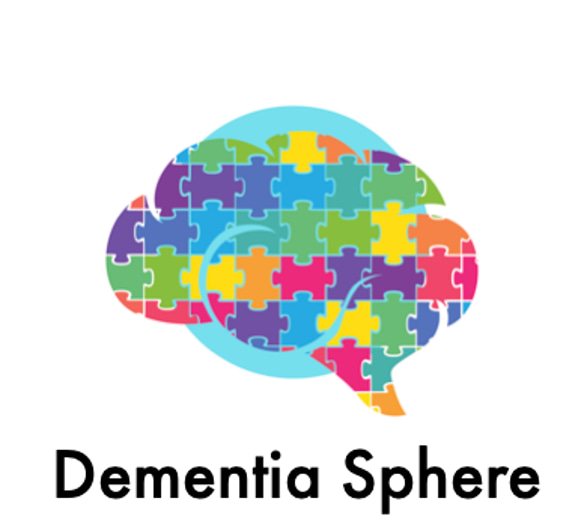Conversations with Shuhala Abbas - Mum's Dementia Advisor


When mum was first diagnosed with Alzheimer’s Dementia we were provided with support by Alzheimer’s Society. We were assigned a Dementia Advisor; Shuhala Abbas, who was there for the duration of the journey. Towards the end, she was more of a support for me than mum as there was really nothing else that mum wanted/needed. Shuhala was a godsend and I’m so fortunate to call her my friend now. I recently asked her if I could document and publish her perspective on our journey and she kindly agreed. It is written in a manner that reflects her having a conversation with me.
Our first interaction
Your mum was introduced to me at the memory clinic in September/October 2018 when the consultant brought her over to me. Both you and the carer were with her. She had received her diagnosis, and the consultant felt she needed additional support. The usual Dementia Advisor work we do for newly diagnosed people is to explain the implications of the diagnosis, the stages, legal matters etc. So that was what we discussed during that first meeting.
During our initial interaction your mum was chatty, very friendly and an interesting individual and amazing in my opinion. She was very open and transparent, telling me everything about her life that she could; she told me about you and how proud she was of you. She was then taken away for further tests whilst I sat with you and the carer. I remember how tearful you were about whether mum would recognise you. I replied that, a situation like that would only happen in the advanced stages of dementia and as mum was in the early stages, it would more than likely be a while before that happened. I also had the opportunity to speak to the carer who escorted you both that day. She gave me a bit of background, the sort of support your mum might need and the support that was already in place. This enabled me to get an overall picture in terms of what might be required, so the next step was to arrange a home visit.
In those days, the process of providing support services was different from what it is today. Dementia services would receive a referral and then visit the person/family living with dementia and then undertake a basic assessment. During this assessment their care needs would be discussed. Would any service provision be required? What was their current situation and if there were any safeguarding concerns? It was basically giving them all the information they would need to know and supporting them through understanding the dementia diagnosis.
In terms of your mum, she knew she had dementia, but in my opinion, she didn’t happily accept it, but then again, who would? So, the first problem is understanding whether the client realises that they have dementia and yes, your mother knew she had a memory problem. I frequently visited your mum, and on some occasions, you were present and other times, not.
The Way Forward
You mum was diagnosed when she was still in the early stages so I thought it important to discuss issues like LPA (Lasting Power of Attorney), obtaining a blue badge and such matters. I remember you were present on one of the occasions when we discussed this and that was hard as your mum did not agree to it. She couldn’t understand why she needed to sign an LPA and was very reluctant to do it. At the end of the day, it was her choice and I had to respect that.
We also discussed your mum going out and doing things that she enjoyed. She expressed that she liked singing. I tried to get her to join ‘Singing for the Brain’ but she wasn’t too sure about it and didn’t join the class.
Her primary concern was around your late father’s book collection. She wanted the books sorted, catalogued and if appropriate, sent to India where many of the family would be interested in reading them. She had a lot on her to-do list, and was very anxious around that; wanting to get those tasks completed. However, when anybody else or I presented her with solutions, she wasn't ready to accept them either. She frequently talked to me about the loss of her brother, your dad and your sister in the space of 4 months, and how it really impacted her. She was grieving, she really was. I think she was also struggling with depression which is one of the symptoms of the disease as well.
In all my interactions with your mum, she was lovely, kind and very welcoming. I enjoyed having chats with her and I think that's what she really wanted. She just wanted people around her. You could tell that was what her life was like before; she would have people around and was very social and that was what was missing. I think people do stop visiting you when you are elderly. You don't meet new people and you don't really make new friendships. That's what she was keen to do, and I was very keen for her to do that too, but I could never get her to attend anything.
In 2018/2019 there were very little services in her borough, unless you were really advanced in terms of dementia. Additionally getting your mum over to day centres and things like that was difficult because it probably wasn't her type of thing. The services that were available probably did not address her cultural needs either.
Care Support
In terms of care support, I thought it was quite impressive that you had such a lovely arrangement in place even though you were not here. I have been in homes where people like yourself, had carers who would almost live there. They would have cameras everywhere and then on the opposite side of the spectrum, there were families who just didn't have any support for their loved ones. So, it was really nice to see that, you really catered to your mum’s needs. You provided her with three Bengali speaking carers. It was nice to see them alternate between one another. They were all really lovely, although I didn’t interact with all three as it depended on who was there when I visited. I do remember one of them being very efficient.
Safeguarding
I did get the feeling however, that your mum was concerned sometimes that the carers were helping themselves to things. I wasn’t sure if that was her memory problem or if it was really happening. It was hard to work it out because on one hand she was still early in her dementia journey. I also remember you telling me that mum had falsely accused another family member and that had ruined the relationship.
There was one carer that I felt to be crossing boundaries a little bit. I wasn't sure how, but I just felt she was. I know you liked her a lot. Your mum never really said much about her, but I just found my interaction with her wasn't that great. I'm sure she was a wonderful person, and I didn't have areas of concern until a bit later. It was when she brought that young man around without really discussing it with you. The young man doing DIY was fine, but then him providing your mum with head/feet massages and things like that, I just found it unusual. I also had the impression that your mum was very conservative, you know, she came across very conservative and then this was happening. I thought, okay, has Nazia consented to this? Are you aware? Did she (mum) understand that this wasn’t a family member especially as your mum started calling him her ‘grandson’? Was that something that she would've normally allowed someone to do? So, that was my concern. And that's what I remember addressing with the social worker. Then when the money was allegedly being taken out of her account, I did feel like I think it was about the money. There was a lot of greed and that really concerned me.
You and your mum
When I would see you and your mom together, it was just so lovely because you both were very alive, very strong, very dominant women. I know you would clash because you were so similar, but behind your back she would say lovely things about you; the care that you provided for her, the love that you had for her and the way you would really look out for her. Others could see that you were really stressed by it especially as you were away from home (overseas) which made it really challenging for you.
I also think it was a lot to take on, especially when you had lived an independent life and suddenly, you had to really rethink everything and support your mother. Support comes in different ways. It doesn't necessarily mean you have to live at home and do personal care for someone. I therefore, did see you as a very active, involved carer and also someone who really cared, someone who wasn't selfish, someone who was actually too caring or always trying to do the right thing by mum. This was despite your mum’s resistance to some of your support and some of the things that we jointly wanted to put in place.

Privacy Policy
Terms and Conditions